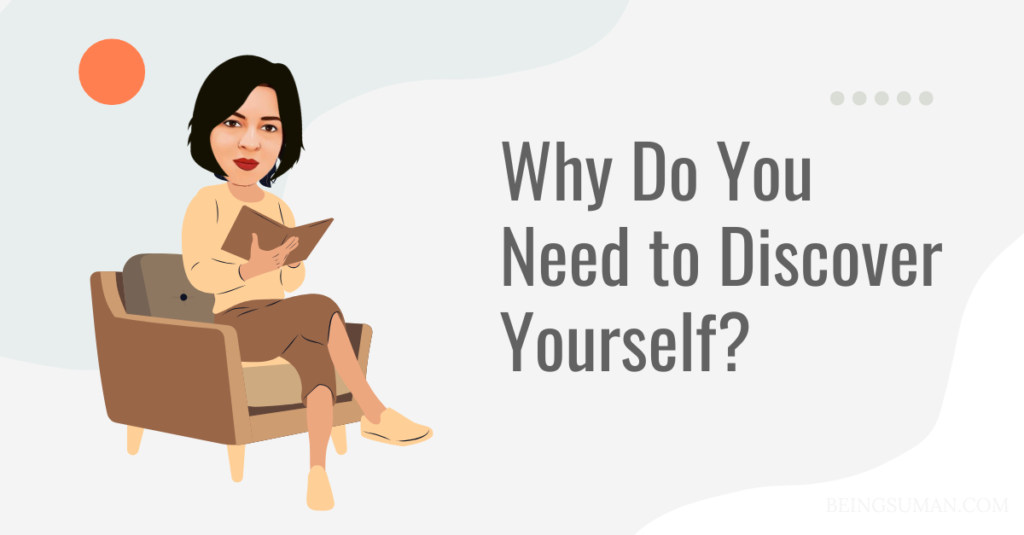
Why Do You Need to Discover Yourself?
Puzzled? Me too. I mean, I’m forty-freaking-something, and now I need to work on discovering.
Trust me, I thought the same thing. Yet here I am, writing an entire blog on self discovery journal prompts to help fellow midlifers.
Imagine it took me two precious decades of my life to understand no matter what age we are, personal growth should always be a priority!
What bought me to that realisation ?
Let me take you back. I’ve always been the extroverted type—venting, talking, and leaning on people to help untangle my emotional mess.
Sharing my negative thoughts with people I know. Messing up mine and their mental health probably ha ha ha.
The truth is, not everyone is equipped to sort you out. Probably they are as much messed in their own life.
Such people, despite their best intentions, may leave you in a deeper mess than where you started.
And besides, no one else has the answers to your life’s questions. Only you do.
I spent most of my 20s and 30s thinking I knew myself. Thinking that self-development was for “others.”
That was the biggest mistake ever. I was stumbling through life as it was happening, occasionally making good decisions that worked for me.
But here’s what I’ve learned: self-discovery isn’t a one-time thing. It’s a periodic check-in with yourself—a way to stay grounded and focused on your goals.
For me, the real shift came in my late 30s when I intentionally began journaling with journaling prompts.
Journaling became my trusted friend—listening without judgment, giving me the space to vent, reflect, and dream.
It’s been my ultimate self-discovery tool, helping me make sense of my life and, more importantly, revealing my true self.
Through journaling, we create a safe space to meet our authentic selves—warts, dreams, fears, and all. Through journaling we kindle more self love.
Isn’t that a gift worth giving yourself?
What is Self-Discovery Journaling?
Self-discovery journaling is less about polished prose—we can let Grammarly rest here.
We can take off our editor’s hat and simply write through honest self-reflection.
Mess up the punctuation, but keep the honesty intact!
It’s a super gentle excavation—digging through layers of thoughts, past experiences, emotions, and patterns to understand what truly makes us tick.
It’s not just about recording events; it’s about identifying patterns, beliefs, and core values.
We start writing and find answers to questions we didn’t even know we were asking. When done consistently, this practice can guide us toward positive changes and greater self-awareness and take charge of your own life.
How Self-Discovery Journaling Practice Helps with Personal Growth
Journaling helps us discover what truly matters to us and what we should focus on.
I was stuck in my midlife, torn between the urge to make money immediately and the desire to create long-term wealth.
Both demanded persistence and patience, but one was quicker than the other.
Journaling helped me figure out what would truly bring me lasting happiness—quick bucks or a healthy bank balance.
I realised I wanted to build my own endeavour rather than keep exchanging my time for money, even if quick relief was tempting.
Getting Started with Journaling Practice for personal development
In your free time, grab a notebook or open a notes app—whatever works for you. No need to overthink it.
Set aside a few minutes daily to jot down your thoughts, feelings, and the random chaos of your day.
If staring at a blank page feels like too much pressure, use some self-discovery journal prompts to nudge you in the right direction.
Prompts are great for firing up your neurons and uncovering your values, beliefs, and goals.
Here is a complete guide on how to start a journal.
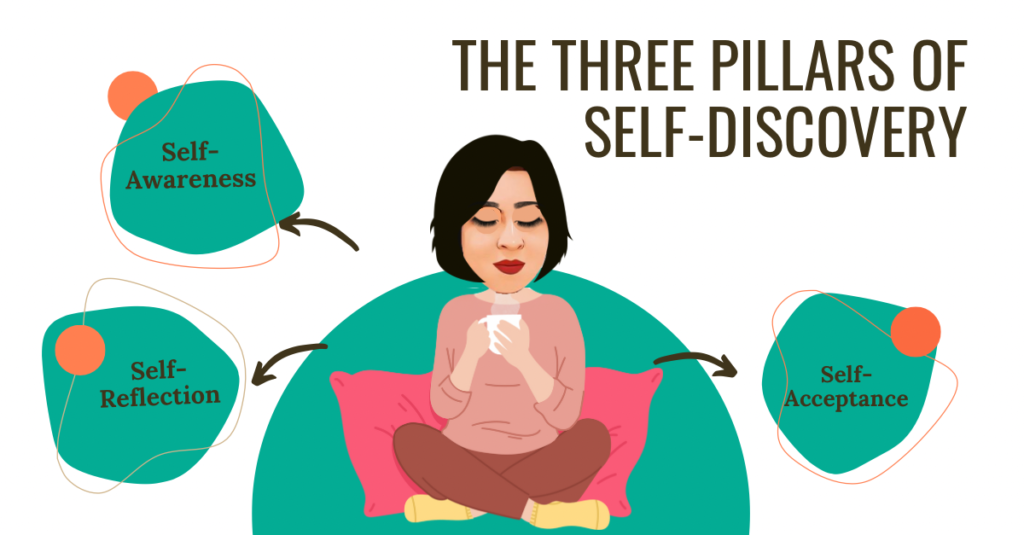
The Three Pillars of Self-Discovery
Self-discovery rests on three pillars:
Self-Awareness
Knowing who you are, what you feel, and why you act the way you do. It’s about tuning into your thoughts and emotions without judgment.
Self-Reflection
This involves taking time to process your experiences and choices. It’s the “pause and think” pillar—where journaling shines as your go-to tool.
Self-Acceptance
Embracing all parts of yourself—the good, the messy, and everything in between. It’s the foundation for growth and meaningful change.
Self acceptance is the foundation of self love.
Together, these pillars help you with deeper understanding of your true self.
How to Journal for Self-Discovery
No matter what you do, setting an intention and goal is the first step.
So when you begin journaling for self-discovery:
- Decide why you’re journaling—mental clarity, self-awareness, or just untangling the mess in your head.
- Pick a prompt to get started, such as, “What truly matters to me?” or “What do I want to achieve this year?”
- Write as though no one’s reading—no filters, no judgment, just you being real with yourself.
Whether you want to uncover what is not working in your current life, or explore your career ambitions or take an account of your overall well-being – journaling is the perfect tool.

Exploring Your Identity
Who are you, really? Your identity is a mix of your values, beliefs, and all the unpredictable twists life throws at you. Journaling is like peeling back the layers—minus the tears you get with onions.
Use prompts to dig deeper and figure out what makes you tick, what grounds you, and where you truly fit in this ever-changing world.
Here are journal prompts to explore what shapes your identity:
- What do I value most in life?
Example: Do you value honesty, creativity, or maybe quality time with loved ones? Write about what truly matters to you. - What do I believe about myself and the world?
Example: You might believe, “I’m a good listener,” or “The world is full of opportunities.” Explore your beliefs, big or small. - What life events have shaped who I am today?
Example: Maybe a tough breakup taught you resilience, or starting a new job pushed you out of your comfort zone. - What roles do I play in my life (like parent, friend, or professional)?
Example: Think about being a supportive friend, a caregiver, or a mentor—how do these roles feel to you? - What part of me do I keep hidden from others?
Example: Maybe you keep your love for poetry a secret, or you rarely share your struggles with anxiety. Why is that? - When do I feel most like myself?
Example: Do you feel most alive when hiking in nature, dancing to your favorite playlist, or curled up with a good book? - What am I scared of when it comes to being myself?
Example: Maybe you worry about being judged for speaking your mind or fear losing people if you set boundaries. - Who do I look up to, and why?
Example: Perhaps you admire a friend for their kindness or a colleague for their courage to take risks. - What words do I use to describe myself?
Example: Words like “hardworking,” “sensitive,” or “indecisive”—are they how you truly see yourself, or just how others label you? - What do I want people to remember about me?
Example: Do you want to be remembered as someone who was compassionate, adventurous, or always made others laugh?
Knowing yourself by journaling emotions
Emotional awareness isn’t always easy—it’s sitting with feelings you’d rather ignore and figuring out what they’re trying to tell you. Journaling has a way of gently nudging those emotions to the surface, helping you understand the ‘why’ behind them.
Simple prompts like “What am I grateful for today?” or “What can I let go of?” can open up new layers of self-awareness, giving you a clearer sense of who you are and what you need.
Here are 10 deep and thought-provoking journaling prompts for exploring emotions:
- What emotion have I been feeling most often lately, and what might be causing it?
Example: Is it stress, joy, or frustration? Reflect on what’s triggering this emotion in your daily life. - When was the last time I felt truly happy, and what contributed to that feeling?
Example: Write about a recent moment of joy—was it a conversation, an achievement, or simply time alone? - What emotions do I find hardest to express, and why?
Example: Consider if it’s anger, sadness, or vulnerability and explore what holds you back from showing it. - What’s one emotional wound I’m carrying, and how does it affect me today?
Example: Think about a past experience that hurt you—how does it shape your reactions or choices now? - How do I tend to react when I feel overwhelmed, and what does that say about me?
Example: Do you shut down, lash out, or distract yourself? Reflect on what this pattern reveals. - What triggers me emotionally, and how can I respond differently next time?
Example: Think of a recent situation that set you off—how could you handle it in a way that feels more aligned with who you want to be? - What do I often feel guilty about, and is that guilt justified?
Example: Reflect on whether this guilt is coming from external expectations or your own inner critic. - How do I take care of myself when I’m feeling low, and what could I do better?
Example: Write about your self-care practices and brainstorm ways to support yourself more effectively. - What emotions do I associate with success, and what does that reveal about my goals?
Example: Is success tied to pride, relief, or even fear? Explore how your emotions shape your ambitions.
How do I want to feel more often, and what steps can I take to invite those emotions into my life?
Example: Whether it’s peace, excitement, or confidence, reflect on small actions to cultivate those feelings.
Mindful Self Reflection Prompts
Life’s happening right now, not in your to-do list or yesterday’s worries. Staying present helps you actually live it instead of just rushing through.
Practicing mindfulness is like hitting pause on the chaos—focusing on what’s in front of you and letting go of distractions. Try journal prompts like “What am I grateful for today?” or “What can I let go of?” to help you stay grounded and tuned into the moment.
Here are 10 thoughtful and practical journal prompts for self reflection.
- What moments from today made me feel truly present?
Example: Was it during a walk, a conversation, or simply sipping your morning coffee? - What’s one thing I can do to slow down and enjoy this moment?
Example: Reflect on a simple practice, like taking deep breaths or pausing to notice your surroundings. - What thoughts or worries are pulling me away from the present?
Example: Write down the mental chatter and see if it’s something you can release. - What does being “mindful” mean to me, and how can I practice it more often?
Example: It might mean focusing on your senses, emotions, or even just being kind to yourself. - What’s one small thing I can appreciate about today?
Example: Maybe it’s the sound of rain, a smile from a stranger, or a quiet moment of peace. - What distractions keep me from being present, and how can I reduce them?
Example: Are you constantly scrolling on your phone or lost in overthinking? Explore how to tune out the noise. - When was the last time I felt calm and centered, and what helped me get there?
Example: Reflect on whether it was meditation, journaling, or simply stepping outside for fresh air. - What am I grateful for in this exact moment?
Example: Look around and notice the small things—comfort, connection, or even just being here. - What is one thing I can let go of that no longer serves me?
Example: This could be a thought, a grudge, or even an unnecessary task on your list. - How can I bring more mindfulness into my daily routine?
Example: Think of simple actions like eating without distractions, pausing to breathe, or journaling at the end of the day.
Becoming Self-Aware and managing Communication and Boundaries.
Figuring out how to communicate your needs and set boundaries is a huge part of self-discovery. Journaling gives you the space to reflect on where you stand and what you need to change.
Here are 10 deeper, reflective journaling prompts for Self-Discovery Through Effective Communication and Boundary-Setting:
- What are my non-negotiables in relationships, and how do I communicate them?
Example: Reflect on the values or actions you need from others to feel respected and supported. - When was the last time I felt proud of how I communicated my needs?
Example: Write about a moment you expressed yourself clearly and how it felt. - What are my biggest fears about setting boundaries, and where do they come from?
Example: Explore whether these fears stem from past experiences or self-doubt. - How do I typically respond when someone crosses my boundaries?
Example: Consider if you tend to stay silent, become defensive, or avoid confrontation—and why. - What do I need to feel safe expressing myself, and how can I create that environment?
Example: Reflect on whether you need time, trust, or specific support from others. - How do I balance being assertive with being compassionate in my communication?
Example: Explore how you can express your needs without feeling harsh or overly accommodating. - What patterns do I notice in my communication during conflict?
Example: Write about whether you avoid, escalate, or calmly address disagreements. - What boundaries have I set in the past, and how have they improved my life?
Example: Reflect on a time when saying “no” or setting limits had a positive outcome. - What’s one area of my life where I need stronger boundaries, and why?
Example: It could be work, friendships, family, or even how much time you spend on social media. - How does respecting my own boundaries help me respect others’ boundaries?
Example: Think about how taking care of your needs allows you to show up better for others.
These prompts help you dig deeper into your patterns, understand your emotions, and create healthier ways of connecting with others—all while staying true to yourself.
Finding Inspiration and Creativity
Inspiration and creativity are windows into our authentic self. They reveal what excites us, what moves us, and what we’re capable of creating. Journaling can help us uncover these sparks and bring them to life. Reflect on prompts like:
What inspires me the most right now, and why?
Example: It could be a song, a book, or someone’s story—explore what draws you to it.
What’s one memory of being truly creative, and how did it make me feel?
Example: Reflect on a time you painted, wrote, cooked, or solved a problem in a unique way.
What activities make me lose track of time, and what do they reveal about me?
Example: Think about hobbies or tasks where you feel completely absorbed and at ease.
Who are the people I find most inspiring, and what qualities do they share?
Example: Identify role models or creative individuals and what you admire about them.
When do I feel most creative, and how can I create more opportunities for that?
Example: Maybe it’s early mornings, while traveling, or in nature—think about how to replicate that environment.
What are my favorite ways to express myself creatively, and why?
Example: Consider writing, drawing, problem-solving, or even decorating—what makes you feel alive?
What’s one thing I’ve always wanted to try but haven’t?
Example: Is it learning an instrument, trying a new recipe, or starting a project? Reflect on what’s holding you back.
What emotions do I feel when I’m inspired or creative?
Example: Write about whether it’s excitement, peace, or a mix of both—and why it matters to you.
How do I handle creative blocks, and what strategies help me overcome them?
Example: Reflect on whether stepping away, trying something new, or journaling itself helps break through.
What does being creative mean to me, and how can I honor that part of myself?
Example: Explore how creativity shows up in your life and how you can nurture it, even in small ways.
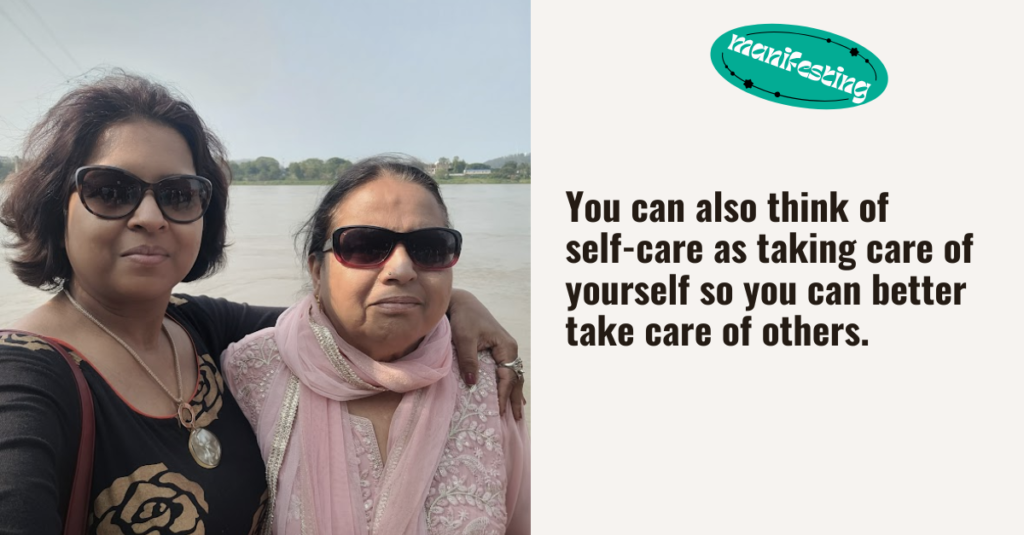
Practicing Self-Care and Compassion
Self-care and compassion are at the heart of self-discovery—they’re how you show up for yourself. Journaling helps you explore what you need and how to give yourself grace when life feels heavy. Reflect on prompts like:
What’s one way I can remind myself that I’m enough as I am?
(Write it down. Stick it on your mirror. Say it out loud.)
What are three tiny ways I can take care of myself today?
(Skip the cliché bubble baths. What actually helps you?)
When was the last time I went easy on myself?
(How did it feel, and why don’t you do it more often?)
What’s one thing my body, my mind, or my heart is asking for right now?
(Listen. The answer might surprise you.)
What boundaries do I need to set to stop feeling drained?
(Yes, saying no counts as self-care.)
If I talked to myself like I talk to my best friend, what would I say?
(Hint: Probably not, “Wow, you’re terrible at this.”)
What’s one thing I’ve done recently that I’m actually proud of?
(Even if it’s just folding the laundry.)
How can I stop chasing perfect and just do my best?
(Spoiler: Your best is already enough.)
What does self-care mean to me right now?
(It’s okay if the answer isn’t what Instagram says.)
What brings me joy, and how can I get more of it into my day?
(No, you don’t need permission to enjoy yourself.)
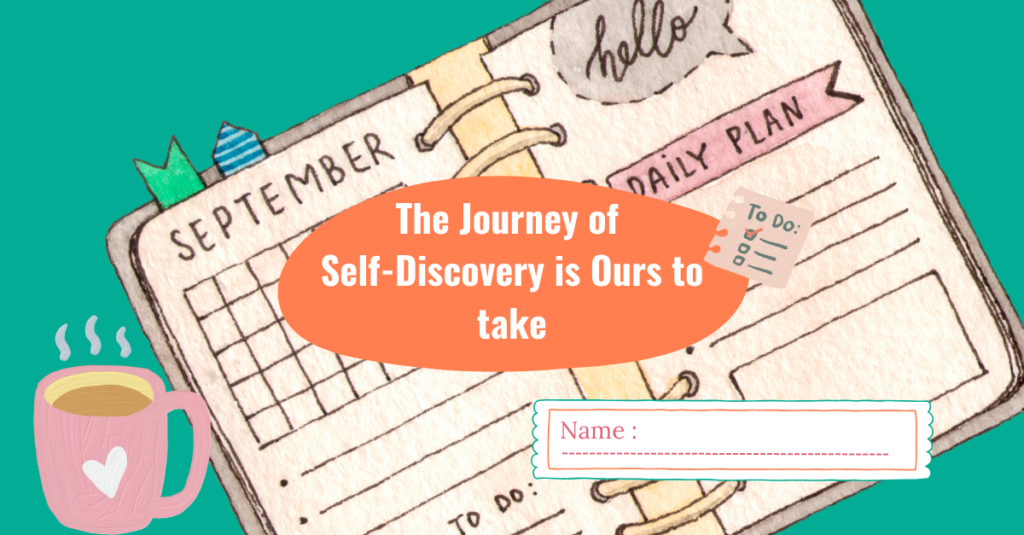
Conclusion: The Journey of Self-Discovery is Ours to Take
This discovery isn’t about finding all the answers; it’s about getting curious, staying open, and embracing the process of becoming. Every moment we spend journaling, reflecting, or simply sitting with our thoughts brings us closer to our authentic selves.
Whether we’re untangling emotions, defining boundaries, or exploring what truly inspires us, each insight is a step toward understanding who we are and what matters most.
Journaling isn’t about perfection or performance—it’s a space where we get to be honest, vulnerable, and real. So let’s grab a pen, pick a prompt, and dive in.
It is the best you can do to gain insight into your wisdom when you shuffle through the past entries.
Become aware of your negative emotions, innermost thoughts.
Light up some candles, play a slow music do what makes your journaling session interesting.
Do whatever it takes but begin writing.
Because if midlife has shown us anything, it’s this: the relationship we build with ourselves is the foundation for everything else. Our journey to self-discovery isn’t just waiting—it’s unfolding, one word at a time.

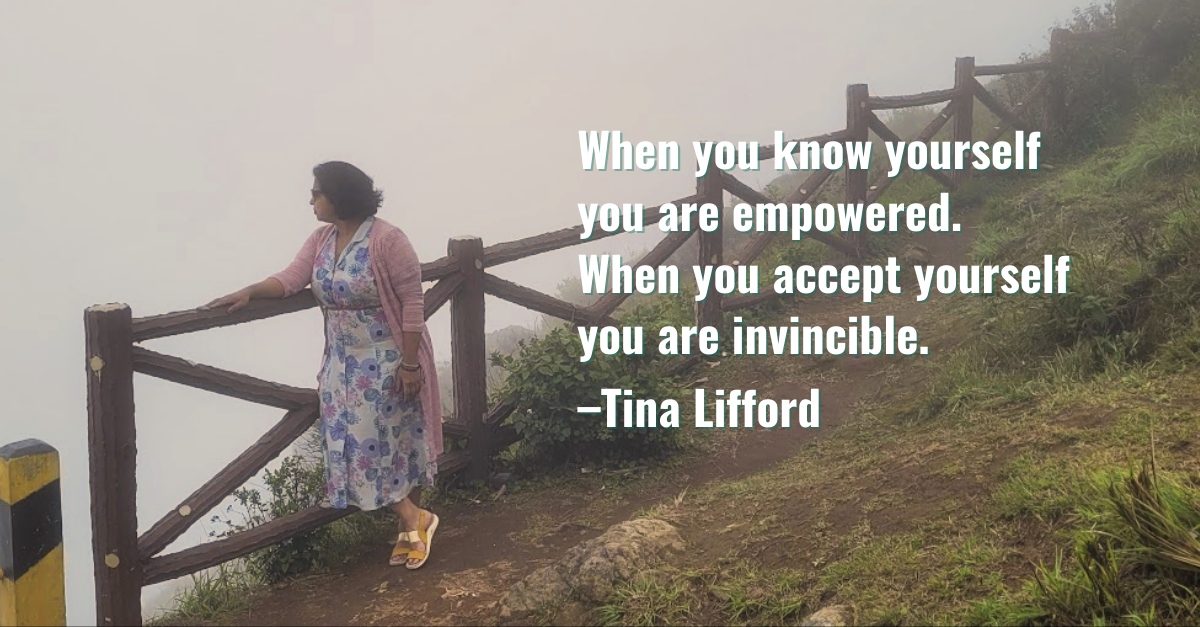
1 thought on “Discover Yourself: 60 Self Discovery Journal Prompts for Midlife Women”